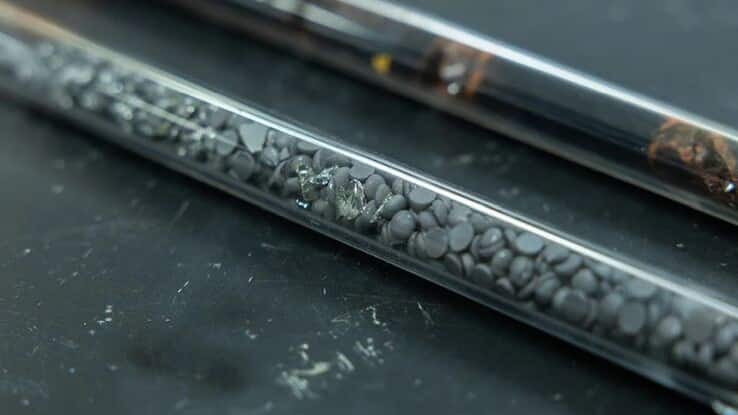
This glass repairs itself after being damaged by gamma radiation
What's the story
A team of scientists led by engineer Myungkoo Kang from Alfred University in the US, has successfully developed a type of glass that can self-repair after being damaged by gamma radiation. This innovative material, known as chalcogenide glass, was observed to gradually regain its structural integrity at room temperature without any external intervention. The discovery could have significant implications for use in space environments and radioactive facilities.
Material properties
Chalcogenide glass: A promising alternative to crystalline solutions
Chalcogenide glasses, which include elements like sulfur, selenium, tellurium, or polonium, are gaining attention for their unique optical transparency similar to crystals such as germanium. As physicist Kathleen Richardson from the University of Central Florida explains, "These glasses are seeing more and more use in systems where the community is looking for alternatives to some of the crystalline solutions that have historically been used before."
Application potential
Unique interaction with light and infrared sensing
Chalcogenide glasses interact with light in unique ways, making them particularly useful for optical devices and infrared sensing. Kang's team was developing such a glass for satellite circuitry, using precise proportions of sulfur, germanium, and antimony. "These glasses exclude oxygen, and that's what makes them special for the infrared," says Richardson.
Resilience test
Resilience tested against gamma radiation
To test the resilience of chalcogenide glass, it was exposed to gamma radiation — a common stressor in space environments. The researchers used cobalt-60 powered irradiators to expose their samples to this high-energy light form, creating microscopic defects in the glass by distorting weak atomic bonds. However, when placed under room-temperature conditions for 30 days, the glass demonstrated its self-healing properties by recovering from these defects.
Future prospects
Self-healing glass could be used as radiation sensor
The self-healing property of chalcogenide glass opens up exciting possibilities for its future applications. One potential use could be as a durable, reversible radiation sensor in extreme environments. The research team is optimistic about further developing this glass and exploring other glasses with similar self-healing abilities. Kang's new research group aims to develop radiation-induced novel ceramics, along with in-situ microstructural and optical metrology methods as a route toward the realization of ultra-fast lightweight optical platforms.